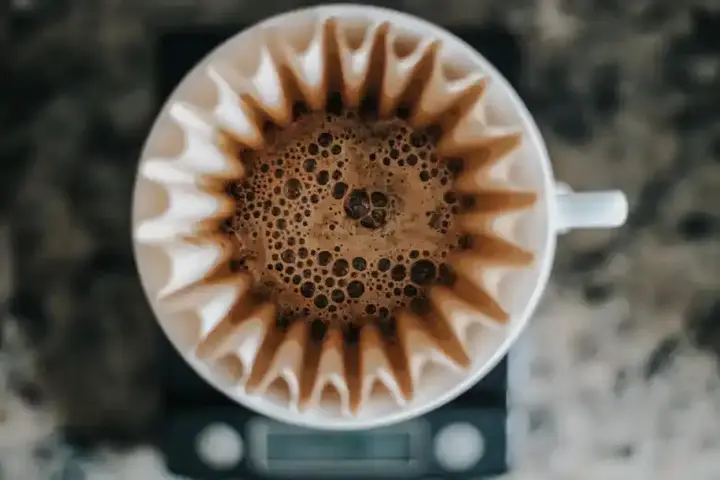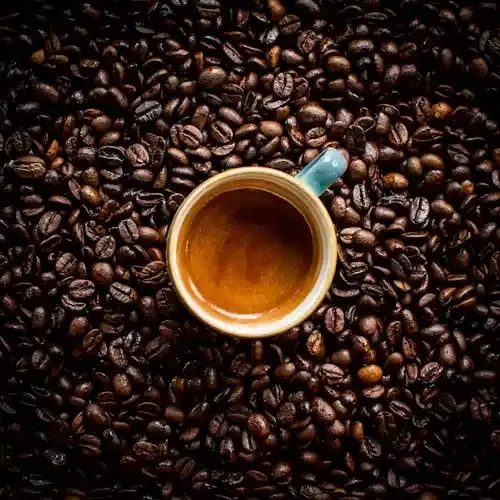Is the effect of espresso on the human body positive or negative?
I love starting my day with espresso. There is something special in its strong aroma, flavor and strong energy boost. I find myself skipping a single dose throughout the day. Recently, I started wondering about the effect of espresso on our bodies. Specifically, how long he stays in our system. It turns out that taking a shot in the morning, a cappuccino at lunch and another booster shot before the end of the workday may not be the best idea.
Show key points
- Espresso provides a quick and powerful energy boost, making it a popular way to start the day for many people.
- The effects of caffeine from espresso typically peak within 40 to 60 minutes and can last in the body for up to 7 hours.
- Consuming more than 400 milligrams of caffeine per day may pose health risks, so moderation is essential.
- ADVERTISEMENT
- Individual factors like body weight, general health, hormone use, and caffeine sensitivity all influence how espresso affects a person.
- Drinking espresso on an empty stomach may lead to unpleasant symptoms like nausea, decreased appetite, and anxiety.
- Regular consumption of espresso can lead to tolerance, reducing its noticeable effects over time.
- While espresso helps improve alertness and concentration, excessive intake can lead to long-term health issues including insomnia, anxiety, and digestive problems.
In general., espresso effects last 5 to 7 hours in the diet of the average adult. Factors such as body weight, age, effectiveness, and an individual's sensitivity to caffeine all affect how long espresso affects an individual. Let's review some important things you should know about eating espresso. It's good to know how long it takes for the effect of caffeine to reach its peak. I'll also share some tips on what you can do to help calm down the energy of coffee if you've been feeling it for a long time.
Recommend
How long does espresso last in the body?

Overeating espresso may harm your health. A 50ml espresso cup provides between 58 and 185 milligrams of caffeine, which varies depending on the type of coffee used to make the espresso. Therefore, health authorities recommend consuming a moderate amount of caffeine that does not exceed 400 milligrams per day. Make sure to drink proper amounts of espresso to avoid overdoing it and maintain your health.
Factors of the effect of espresso on the human body

Espresso contains caffeine and thus helps provide the body with the necessary energy, but addiction to it can be dangerous for your life. How it affects your body and how long it stays in the system varies based on several factors: height, weight, overall health, regular consumption, other medications taken with it, and the amount consumed.
For example, taking hormonal birth control pills can make you more sensitive to the effects of espresso. Regular smokers are less sensitive and may not feel the effect of caffeine at all. People also differ in how caffeine is metabolized, with some breaking it down quickly while others taking longer. People who break it quickly usually don't feel the effect of the stimulus.
As for people who have hypersensitivity to caffeine, they may begin to experience symptoms such as nausea, anxiety, diarrhea, general discomfort, and heart palpitations even with small doses. In contrast, non-sensitive people may not feel any effect even after they exceed the limit. They may even feel like they haven't had coffee at all.
How long does it take for the body to feel the effect of espresso and then get rid of it?

Since our bodies absorb caffeine quickly, some may feel an immediate improvement from espresso, while others have to wait for an energy boost and alertness. After consuming espresso, it takes between 40 to 60 minutes for it to reach its peak effect on our brains. The effects of espresso then fade after about one to two hours. However, traces of coffee and caffeine remain in our system for 5 to 7 hours. It takes a full 10 hours for caffeine to completely come out of our bodies. This is only possible if you do not consume any caffeine every now and then. Otherwise, the duration of the substance in your body will increase.
Can espresso keep you awake?

Certainly, espresso stimulates the nervous system and this helps anyone stay alert after consuming it. Therefore, whenever you feel the need for some extra energy, it is recommended to consume espresso in a small amount. It can be taken in the morning to feel energized and alert throughout the day. But don't drink more than the limit, otherwise it could otherwise harm your health. Some people even eat it at night, so taking it every now and then is a good idea to improve mood. You can eat it if you want to do important work at night. But it is preferable not to usually eat it at night on a daily basis.
Does feeling the effects of espresso last long?

If you think you've eaten too much espresso, the best thing to do is drink a glass of water. It sounds a little strange, but coffee can make you feel dehydrated. You may not feel the need to eat and feel that your appetite has decreased. In this case, you need to make some effort to eat so that you can control your blood sugar, headache and nausea.
The best way is to have espresso with meals so you don't get too nervous. Avoid consuming any caffeinated beverage on an empty stomach. Its long-term effects include anxiety, ulcers, tinnitus, weakness, osteoporosis, confusion, and seizures. Exercise will make you feel better and help burn energy that may be caused by the adrenaline released by caffeine. It is also a fact that if you consume espresso almost regularly, its effects will decrease.

Coffee is the most consumed beverage around the world immediately after water. Espresso in particular is a strong coffee extract, as each 50 milliliters of espresso contains 58 to 185 milligrams of caffeine. There are reports that with the constant consumption of coffee, by 2050 coffee will be a scarce and very expensive commodity. This is because almost all the peoples of the world rely on coffee as a primary drink. There are also athletes who use coffee as a kind of energy enhancer. But despite that there are a lot of harms in case of excessive coffee drinking, so it should not








